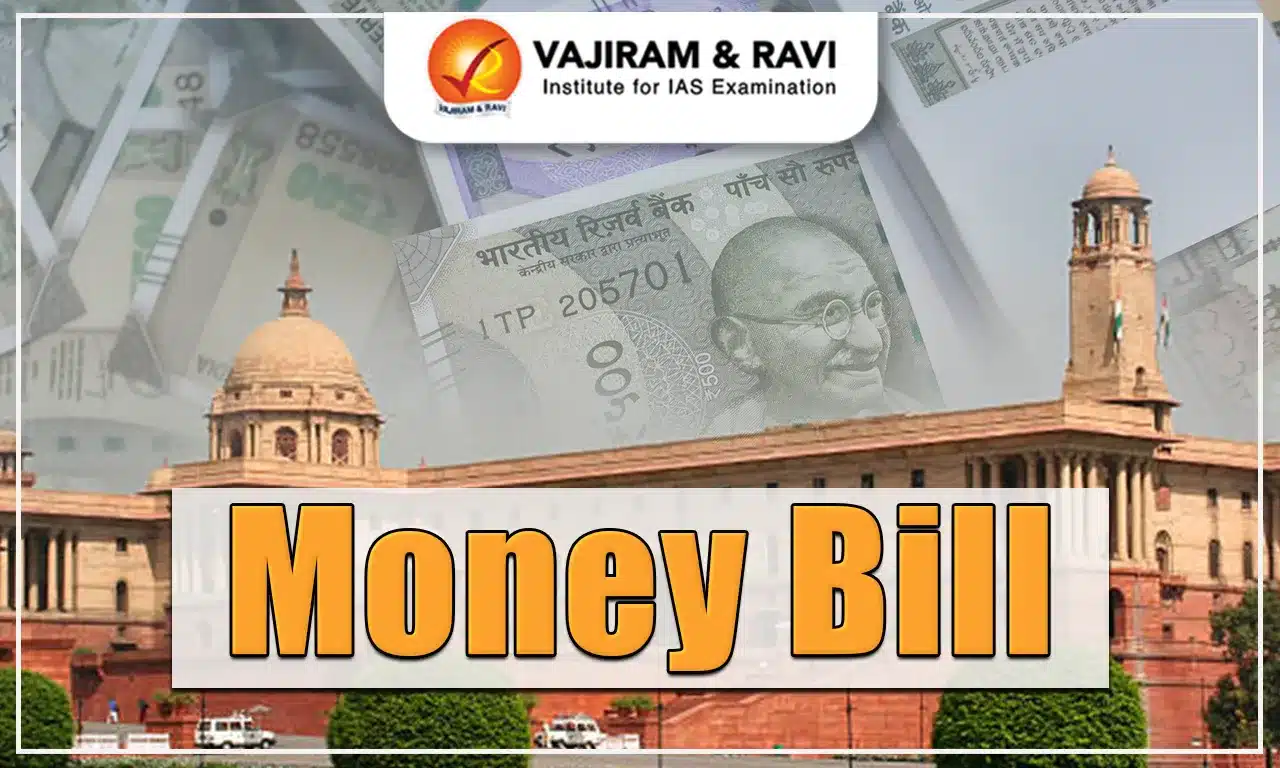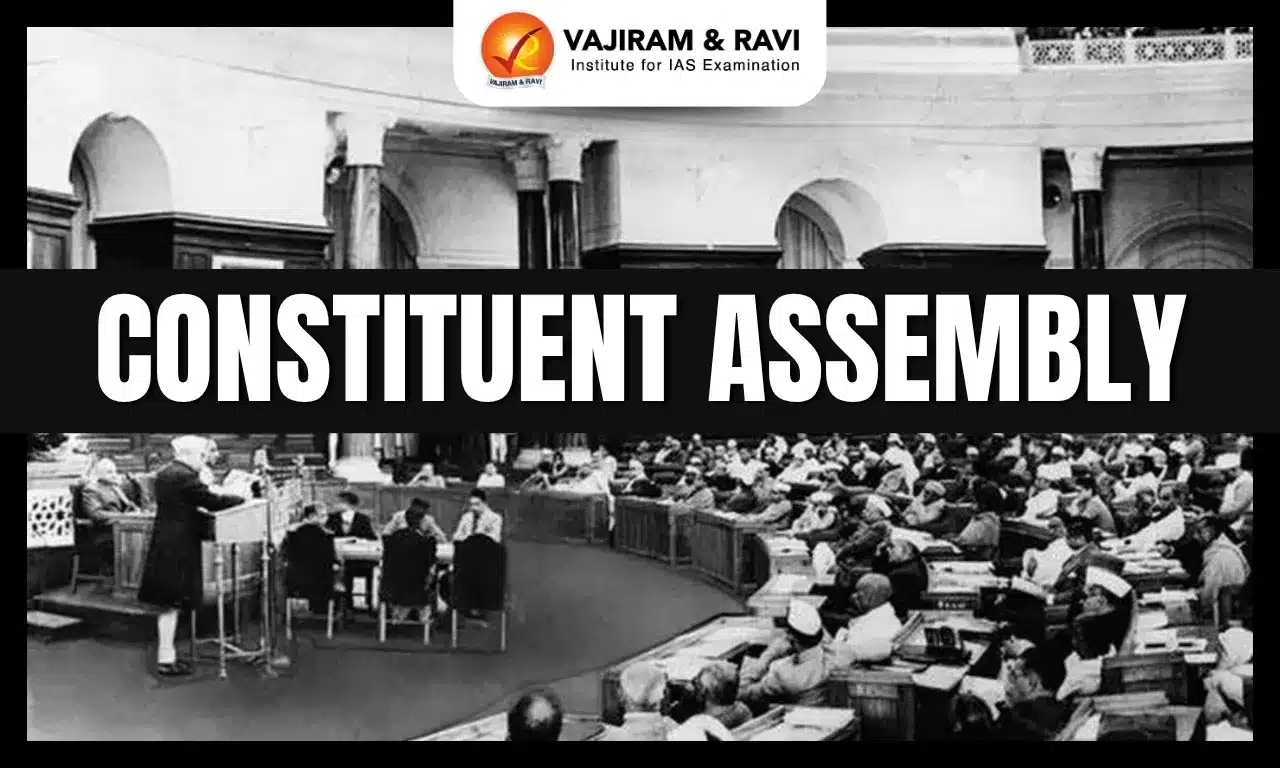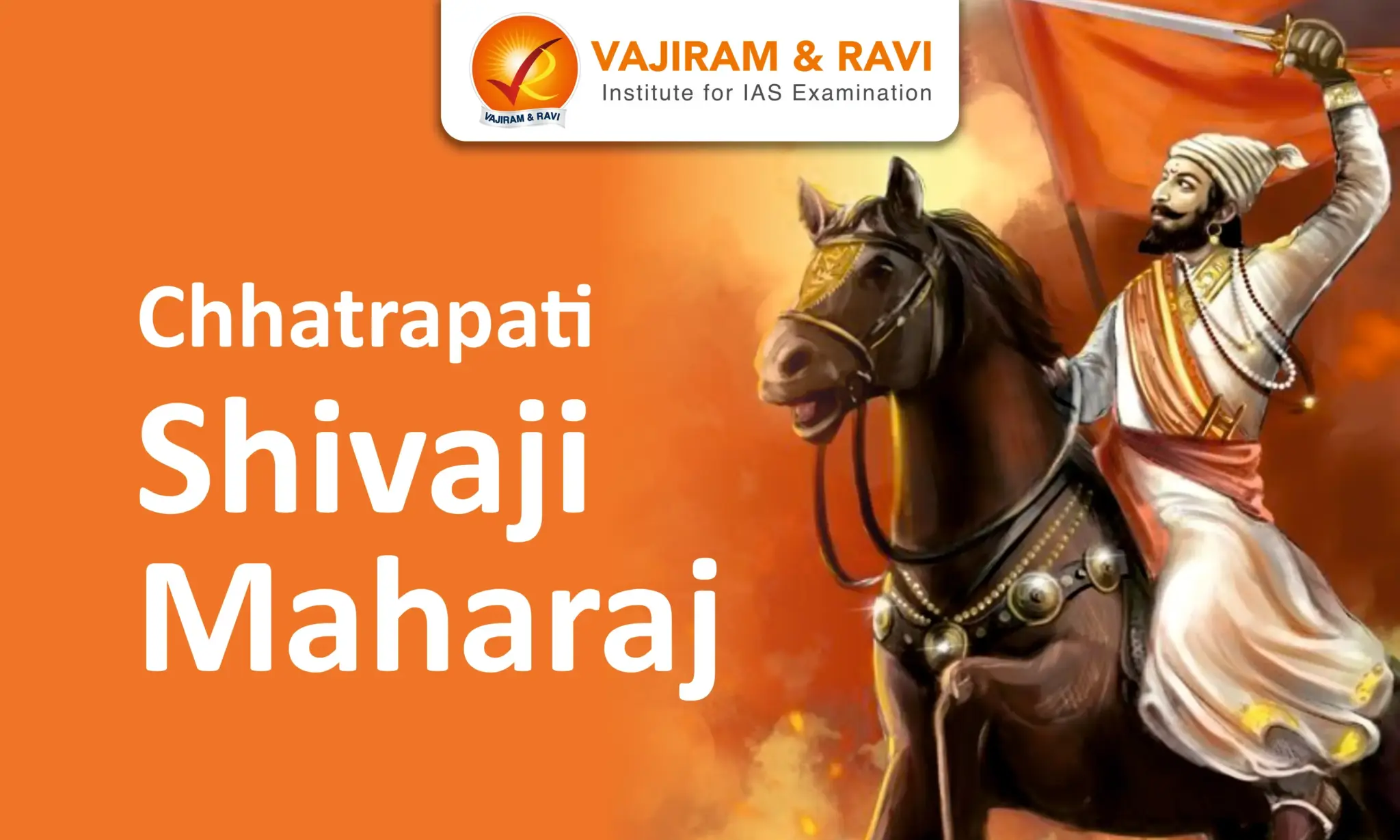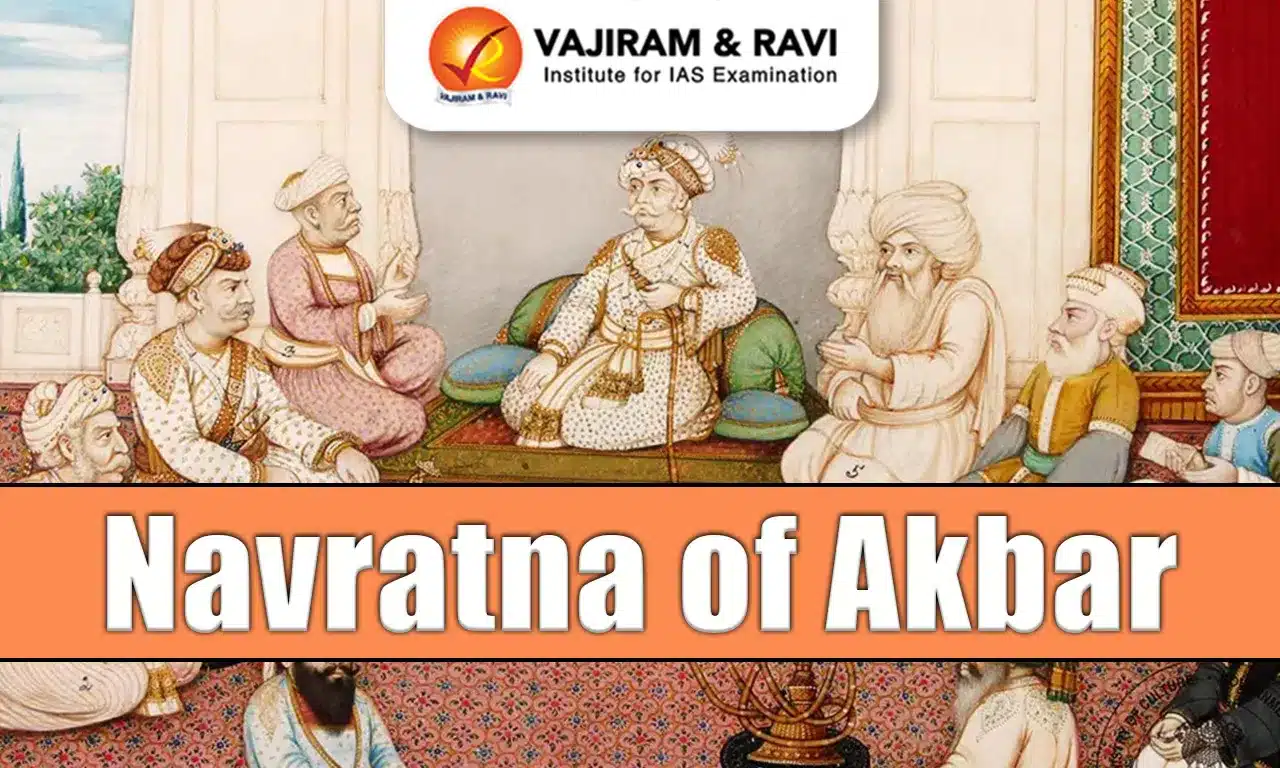What is a Money bill?
- In India, a Money Bill is a type of legislation that relates to the appropriation of money from the Consolidated Fund of India, which is the main fund of the government.
- Money Bills are typically related to financial matters such as taxation, public expenditure, and public debt.
What are the criteria that a bill should fulfill to became a money bill?
According to the Constitution of India, a bill is considered a Money Bill if it contains only provisions dealing with all or any of the following matters:
- The imposition, abolition, remission, alteration, or regulation of any tax.
- The regulation of the borrowing of money or the giving of any guarantee by the Government of India.
- The custody of the Consolidated Fund or the Contingency Fund of India, the payment of money into or the withdrawal of money from any such fund.
- The appropriation of money out of the Consolidated Fund of India.
- The declaring of any expenditure to be expenditure charged on the Consolidated Fund of India or the increasing of the amount of any such expenditure.
- The receipt of money on account of the Consolidated Fund of India or the public account of India or the custody or issue of such money.
- Any matter incidental to any of the matters specified above.
What is the procedure for the passage of the Money Bill in Parliament?
The Constitution lays out a special procedure for the passing of money bills in Parliament.
- Money bills can only be introduced in the Lok Sabha and only with the recommendation of the President.
- Money bills are considered government bills and can only be introduced by a minister.
- After a money bill is passed by the Lok Sabha, it is transmitted to the Rajya Sabha for consideration. The Rajya Sabha has limited powers with regard to money bills and can only make recommendations and cannot reject or amend the bill.
- The Rajya Sabha must return the bill to the Lok Sabha within 14 days, with or without recommendations. The Lok Sabha can accept or reject any recommendations made by the Rajya Sabha.
- If the Lok Sabha accepts any recommendations, the bill is deemed to have been passed by both Houses in the modified form.
- If the Lok Sabha does not accept any recommendations, the bill is deemed to have passed by both Houses in the form originally passed by the Lok Sabha without any change.
- If the Rajya Sabha does not return the bill to the Lok Sabha within 14 days, the bill is deemed to have been passed by both Houses in the form originally passed by the Lok Sabha.
- The Lok Sabha has more powers than the Rajya Sabha with regard to money bills.
- When a money bill is presented to the President, he may give or withhold his assent to the bill but cannot return the bill for reconsideration.
- The President normally gives assent to a money bill as it is introduced in the Parliament with his prior permission.
What are the issues pertaining to the misuse of the money bill?
- Evading scrutiny: Provisions of a money bill should not be used to bypass the legislative process or to evade the scrutiny of the Rajya Sabha.
- Aadhaar Bill Controversy: During the passage of the Aadhaar Act 2016, Opposition has claimed that enabling a fair and equitable distribution of benefits and subsidies is not a money matter under Article 110. Hence, it has questioned the legality of the Aadhaar Bill as a money bill.
- Certifying Authority: There are allegations of partisan role by the speaker through the sole discretion given to the speaker for certifying the bill as a money bill.
- Separation of Power: For instance, Finance Act 2017 was passed as a money bill. It amended various Acts to provide for new rules and appointments to various tribunals, such as National Green Tribunal.
- The Supreme Court held that a money bill should not contain provisions that are not directly related to the subjects listed in Article 110 of the Constitution of India (which defines the subjects that can be covered by a money bill).
What is the difference between a money bill and a financial bill?
| Features | Money Bill | Financial Bill |
| Article | Article 110 | Article 117 |
| Definition | A bill that exclusively deals with financial matters such as the imposition or alteration of taxes, borrowing of money by the government, and expenditure from or receipt to the Consolidated Fund of India. | A bill that deals with financial matters but is not limited to the subjects covered by a money bill |
| Introduction | Can be introduced only in the Lok Sabha | Can be introduced in either the Lok Sabha or the Rajya Sabha |
| Examples | The Finance Bill, The Appropriation Bill | The Banking Regulation (Amendment) Bill, The Companies (Amendment) Bill. |
Last updated on March, 2026
→ UPSC Notification 2026 is now out on the official website at upsconline.nic.in.
→ UPSC IFoS Notification 2026 is now out on the official website at upsconline.nic.in.
→ UPSC Calendar 2026 has been released.
→ UPSC Final Result 2025 is expected to be released soon.
→ Check out the latest UPSC Syllabus 2026 here.
→ Join Vajiram & Ravi’s Interview Guidance Programme for expert help to crack your final UPSC stage.
→ UPSC Mains Result 2025 is now out.
→ UPSC Prelims 2026 will be conducted on 24th May, 2026 & UPSC Mains 2026 will be conducted on 21st August 2026.
→ The UPSC Selection Process is of 3 stages-Prelims, Mains and Interview.
→ Prepare effectively with Vajiram & Ravi’s UPSC Prelims Test Series 2026 featuring full-length mock tests, detailed solutions, and performance analysis.
→ Enroll in Vajiram & Ravi’s UPSC Mains Test Series 2026 for structured answer writing practice, expert evaluation, and exam-oriented feedback.
→ Join Vajiram & Ravi’s Best UPSC Mentorship Program for personalized guidance, strategy planning, and one-to-one support from experienced mentors.
→ Check UPSC Marksheet 2024 Here.
→ UPSC Toppers List 2024 is released now. Shakti Dubey is UPSC AIR 1 2024 Topper.
→ Also check Best UPSC Coaching in India
Money Bill FAQs
Q1. Is budget a money bill?+
Q2. Which house has more power regarding the money bill?+
Q3. Who certifies a Money Bill in India?+
Tags: money bill quest














